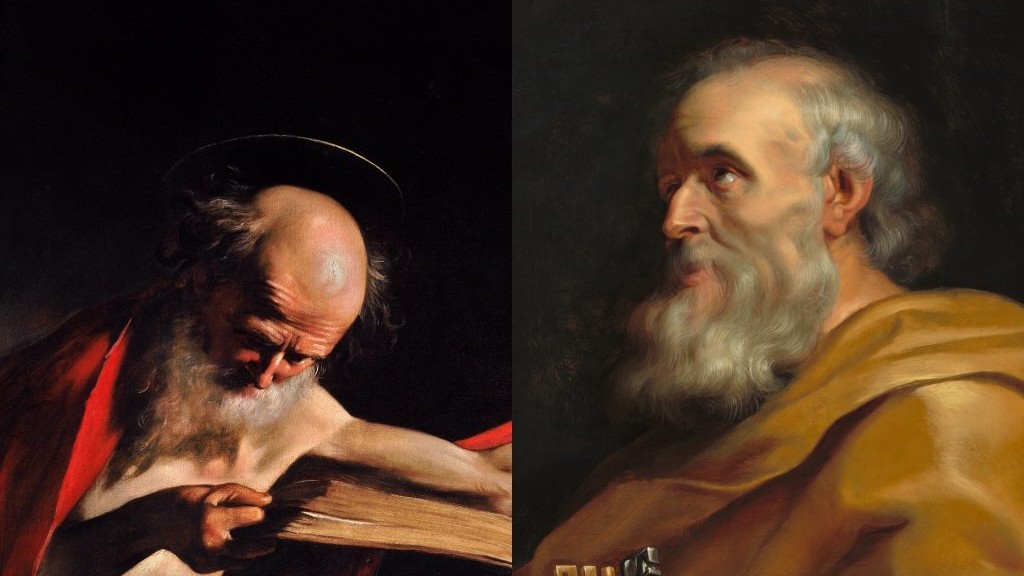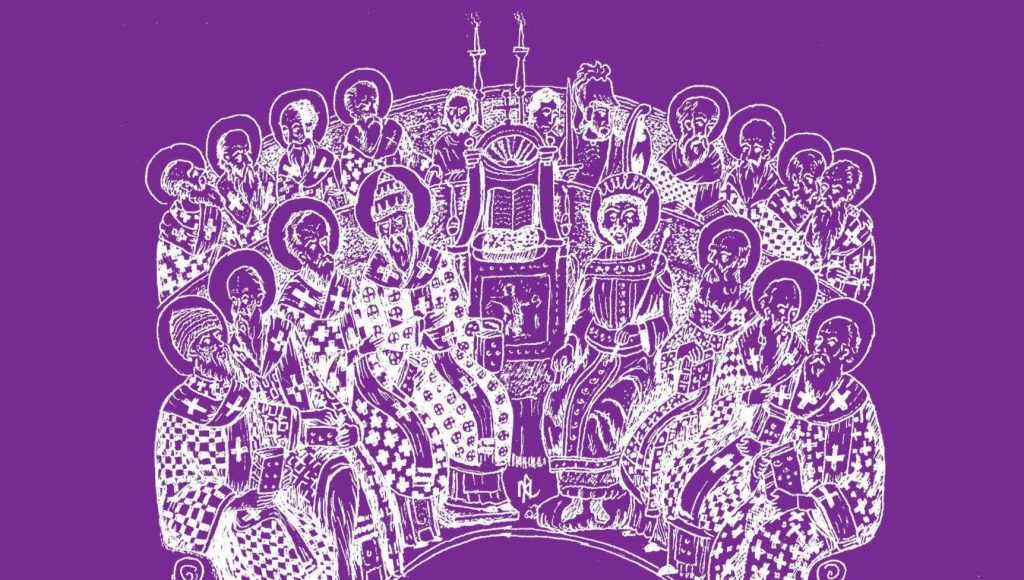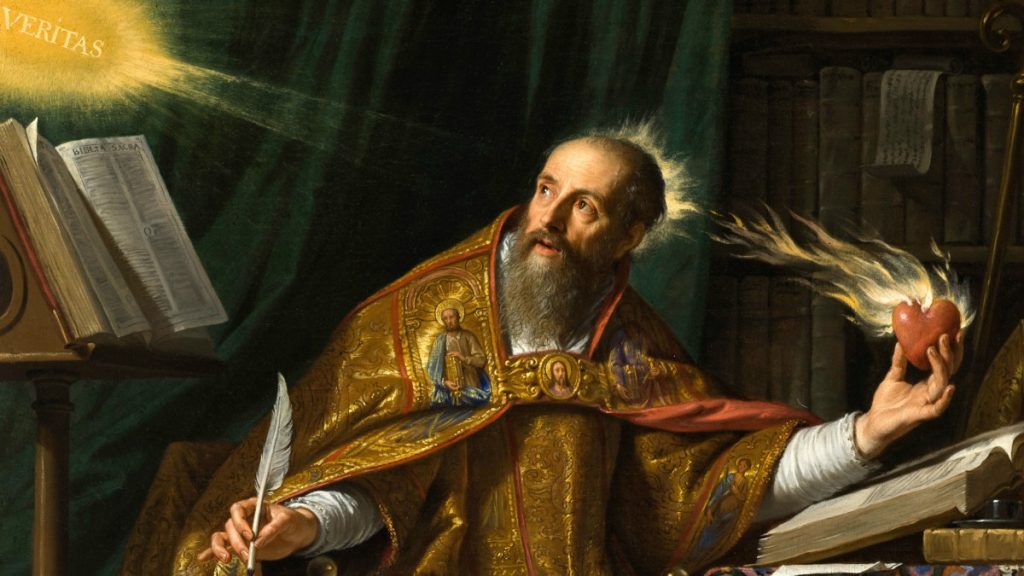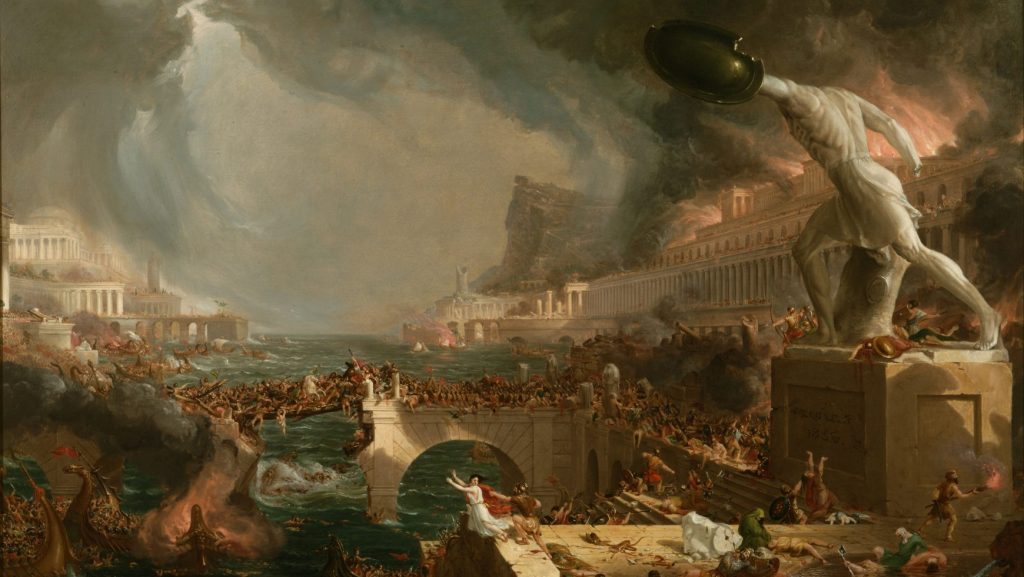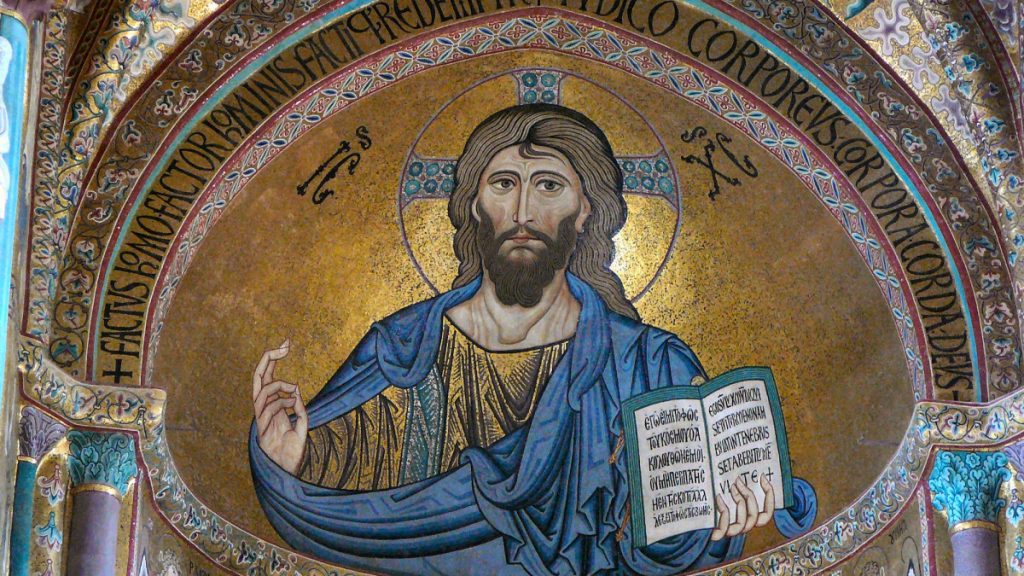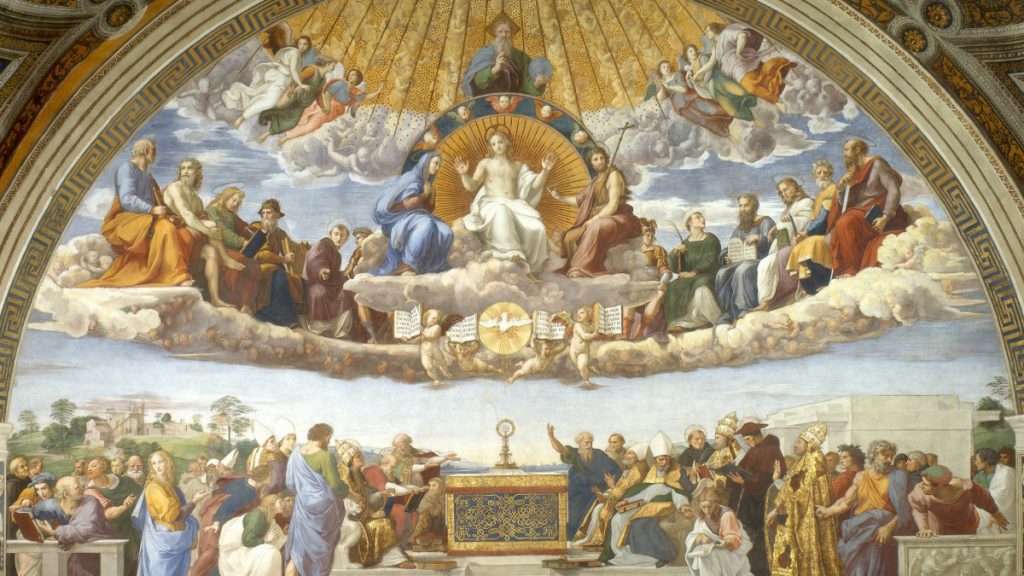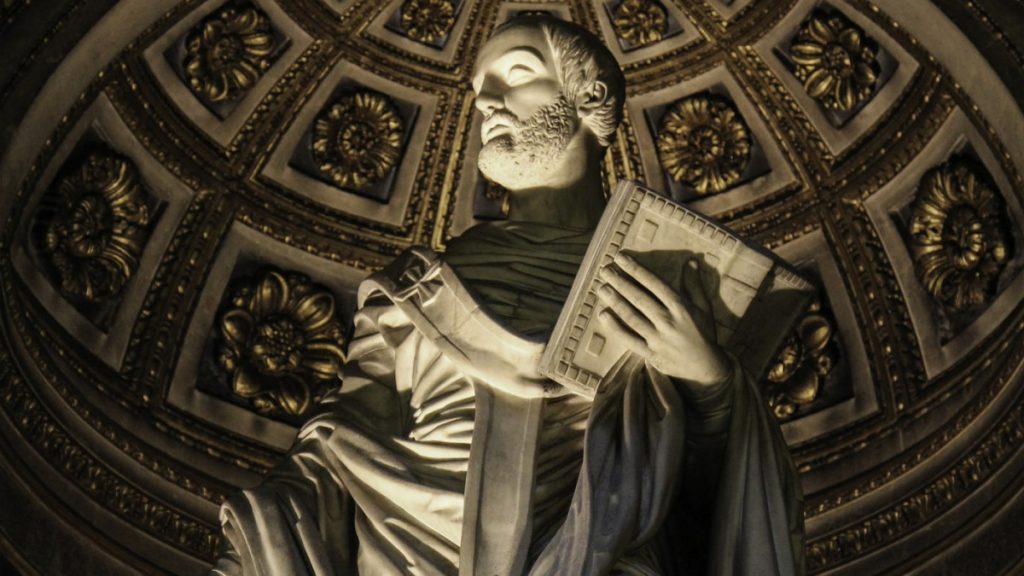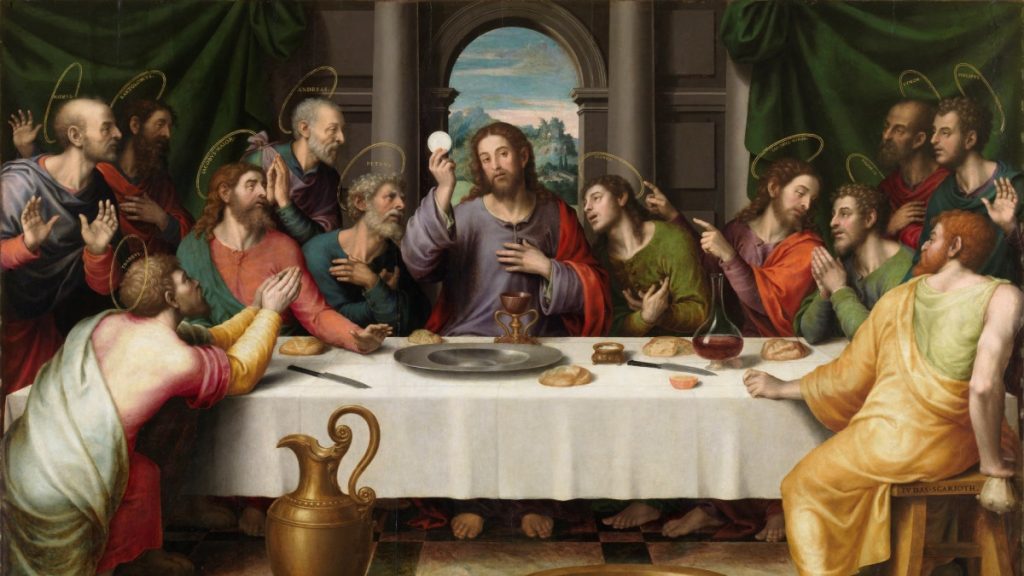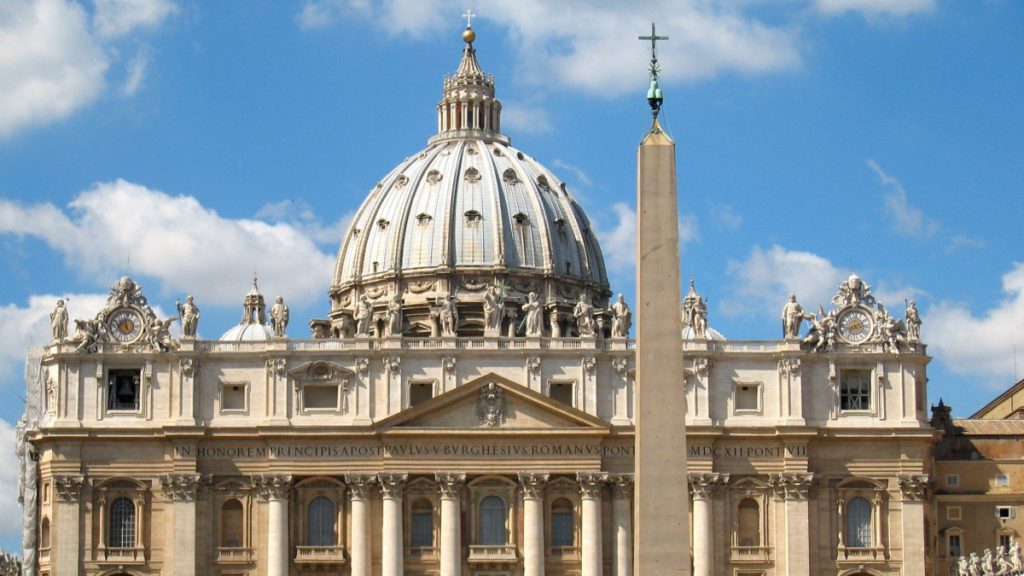Relevant Resources
- Podcast Episode #12 | YouTube | Apple | Spotify
- Quote Archive | The Papacy and the Invincibility of the Church
- Study Bank | The Ancient Lists and Testimonies of Popes Succeeding from Peter
Roadmap
This “Papal Snapshot” concerns the extraordinary assertions about papal authority made by St. Jerome in a letter written to St. Pope Damasus around 376/377.
Our Roadmap is as follows:
- Our thesis is that Jerome’s letter provides very strong evidence of a thoroughly Catholic understanding of the papacy. We will show this by:
- Providing some brief historical context for St. Jerome’s letter; then
- Quoting relevant sections of his Letter 15 to St. Pope Damasus; then
- Showing that his explicit assertions, and implicit assumptions, exhibit a very high, and indeed Catholic view of papal authority; then
- Summarizing the conclusions we believe can be reasonably inferred from his letter.
Historical Context
St. Jerome was born in the 340s around what is modern day Croatia, and died on September 30, 420 in Bethlehem, in the Holy Land. While he lived a good deal of his life in the West (primarily Rome), he spent the last nearly 40 years of his life in the East, dying in a monastery in Bethlehem.
He wrote his Letter 15 to St. Pope Damasus around the year 376/377 from the East, and asks the Pope two main questions:
- First, a question related to what was later known as the Meletian schism, namely, who is the true bishop of Antioch (among three claimants, including a man named Meletius)? And
- Second, a trinitarian theology question, namely, what is the correct terminology with respect to the “hypostases” in God? Is it three or one?
We will not be diving into the details of either the Meletian Schism, or the trinitarian theological question raised by Jerome. But it is important to recognize that he approaches the Pope for an authoritative answer on both questions—the first jurisdictional, the second doctrinal. This is highly significant when it comes to the question of papal authority.
St. Jerome’s Letter 15 to St. Pope Damasus (c. 376/377)
We now proceed to the letter itself, which Jerome opens by explaining to the Pope his need for guidance amidst the chaos in the east (§1):
Since the East, shattered as it is by the long-standing feuds, subsisting between its peoples, is bit by bit tearing into shreds the seamless vest of the Lord, “woven from the top throughout” (John 19:23) since the foxes are destroying the vineyard of Christ (Song. 2:15), and since among the broken cisterns that hold no water it is hard to discover “the sealed fountain” and “the garden enclosed” (Song. 4:12), I think it my duty to consult the chair of Peter, and to turn to a church whose faith has been praised by Paul [Rom. 1:8]. I appeal for spiritual food to the church whence I have received the garb of Christ [baptism; cf. Gal. 3:27]. The wide space of sea and land that lies between us cannot deter me from searching for “the pearl of great price” (Matt. 13:46). “Wheresoever the body is, there will the eagles be gathered together” (Matt. 24:28). Evil children have squandered their patrimony; you alone keep your heritage intact. The fruitful soil of Rome, when it receives the pure seed of the Lord, bears fruit a hundredfold; but here [in the east] the seed corn is choked in the furrows and nothing grows but darnel or oats [Matt. 13:22-23]. In the West the Sun of righteousness [Mal. 4:2] is even now rising; in the East, Lucifer, who fell from heaven [Luke 10:18], has once more set his throne above the stars [Isa. 14:12]. “You are the light of the world” (Matt. 5:14), “you are the salt of the earth” (Matt. 5:13), you are “vessels of gold and of silver.” Here are vessels of wood or of earth [2 Tim. 2:20], which wait for the rod of iron [Apoc. 2:27], and eternal fire.
The fact that Jerome appeals to the Pope regarding a conflict in the east is itself an indication of his belief that the Pope holds some sort of universal jurisdiction. Note that Jerome clearly believes that in consulting the Pope, he is consulting “the chair of Peter,” which he associates with the one true Church, and considers outstanding for its fidelity (see the ancient and unanimous Christian testimony that St. Peter established his apostolic throne in Rome here).
Jerome continues (§2):
Yet, though your greatness terrifies me, your kindness attracts me. From the priest I demand the safe-keeping of the victim, from the shepherd the protection due to the sheep.
In describing the Pope as a “shepherd” capable of protecting the sheep in the east, Jerome is implicitly acknowledging a universal jurisdiction of some kind. This becomes crystal clear in what follows:
My words are spoken to the successor of the fisherman [St. Peter], to the disciple of the cross. As I follow no leader save Christ, so I communicate with none but your blessedness, that is with the chair of Peter. For this, I know, is the rock on which the church is built [Matt. 16:18]! This is the house where alone the paschal lamb can be rightly eaten [Ex. 12:22]. This is the ark of Noah, and he who is not found in it shall perish when the flood prevails [Gen. 7:23]…Consequently I here follow the Egyptian confessors [Catholics expelled by Emperor Valens] who share your faith, and anchor my frail craft under the shadow of their great argosies [large ships]. I know nothing of Vitalis; I reject Meletius; I have nothing to do with Paulinus [rival claimants of the see of Antioch]. He that gathers not with you scatters [Matt. 12:30]; he that is not of Christ is of Antichrist.
These words relate to Jerome’s jurisdictional question, namely, who should he consider to be in the Church among a set of rival claimants for the episcopal throne of Antioch? He believes only the Pope can provide him an authoritative answer to this question. As the rest of his words make clear, Jerome believes that the true Church is that which is in communion with the successor of Peter, the rock, namely the Pope of Rome. To be outside this communion is to be outside the Church, and on the side of Antichrist.
Jerome then provides more details about the controversy in question (§3):
Just now, I am sorry to say, those Arians, the Campenses [the party of Meletius in Antioch, who worshipped outside the city], are trying to extort from me, a Roman Christian, their unheard-of formula…And this, too, after the definition of Nicaea and the decree of Alexandria [allowed three hypostases to be interpreted in a Catholic way, but did not encourage it], in which the West has joined. Where, I should like to know, are the apostles of these doctrines? Where is their Paul, their new doctor of the Gentiles?
The rest of the context indicates that the heretics confronting Jerome asserted that “three hypostases” meant God had three natures, rather than one nature in three persons, as had been taught at Nicaea and other orthodox councils. Jerome considers such novelties offensive to “a Roman Christian,” which, as we’ve seen, he associates with doctrinal fidelity and purity. The conflict centers around the ambiguous language the heretics are trying to weaponize against him.
In the midst of this doctrinal controversy, Jerome proceeds to his second question, the doctrinal one, in which he appeals to the Pope for doctrinal clarification, and again makes a remarkable assertion that indicates a very high view of papal authority (§4):
If you think fit enact a decree; and then I shall not hesitate to speak of three hypostases. Order a new creed to supersede the Nicene; and then, whether we are Arians or orthodox, one confession will do for us all…Or, if you think it right that I should speak of three hypostases, explaining what I mean by them, I am ready to submit.
Jerome quite explicitly asserts the Pope has the authority to decree a new creed for the whole Church, and affirms that he would submit to such a decree. Such a creed, issued by the Pope alone, would even supersede the Nicene creed itself, as he openly states. This flatly contradicts any purely conciliar notion of the Church and its authority, and is far closer to the definition of papal authority promulgated by Vatican I.
In the conclusion of his letter, Jerome once more implores the Pope to clarify not only the doctrinal, but the ecclesial issue at hand. What doctrine should he believe, and with whom should he be in communion in the East? This is a question whose answer he believed could only be provided by the Pope of Rome (§5):
I implore your blessedness, therefore, by the crucified Savior of the world, and by the consubstantial trinity, to authorize me by letter either to use or to refuse this formula of three hypostases…I beg you also to signify with whom I am to communicate at Antioch. Not, I hope, with the Campenses; for they—with their allies the heretics of Tarsus [likely semi-Arians or Macedonians, led by Silvanus of Tarsus]—only desire communion with you to preach with greater authority their traditional doctrine of three hypostases.
A final detail to notice about Jerome’s conclusion is this: even the heretical/schismatic sects in the East recognized that if they obtained papal approval, they could “preach with greater authority.”
Conclusions
We believe we can draw the following conclusions from St. Jerome’s letter to St. Pope Damasus:
- Jerome believed the papal office was instituted directly by Christ, and represents the “rock” of St. Peter in the person of his successors.
- As such, the Pope of Rome, as the direct successor of St. Peter, holds the highest office in the Church.
- This office endows the Pope with universal jurisdiction across East and West, and endows him with the authority to settle doctrinal and ecclesial questions, up to and including issuing new creeds for the whole Church that would supersede even those of an Ecumenical Council.
- As such, communion with the Pope is essential to being in the one true Church Christ established, and promised to protect. To be outside the communion of the Pope is to be outside Christ’s Church. Jerome describes the communion of the Pope as the rock on which the Church is built; as the ark of Noah that will withstand the flood; and as the one household of Israel in which the pascal lamb (the Eucharist) can be rightly eaten.
- Even heretical/schismatic sects in the East recognized that papal approval of their teaching would endow them “with greater authority.”
- Finally, while Jerome does not explicitly assert papal infallibility, such a doctrine would arguably and necessarily flow from his belief that the papacy is divinely established, universal and preeminent in its authority over the Church, and the rock of the Church that will never be defeated by Hell.
